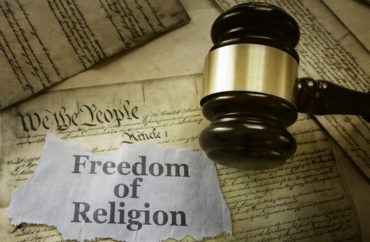
Proposes ‘three component test’ to define religious ministers
Do religious schools have the right to hire and fire teachers who perform “important religious functions,” such as teaching doctrine or religious formation, without government interference?
A Christian university and religious education groups are asking the Supreme Court to “articulate a definitive test” for the scope of the “ministerial exception” laid out in the court’s 2012 ruling, known as Hosanna-Tabor.
The Alliance Defending Freedom filed a friend-of-the-court brief on their behalf in support of Our Lady of Guadalupe School and St. James School, two Catholic elementary schools in Los Angeles. They are represented by the Becket religious liberty law firm.
Both schools let go teachers tasked with communicating and applying Catholic teaching and values in the classroom, in one case after a performance review and the other when a one-year contract was not renewed. The teachers sued their schools, and their cases were consolidated into one on appeal.
The 9th U.S. Circuit Court of Appeals overturned the schools’ victories at the trial court. They argued that the appeals court “broke from the consensus” and turned the “flexible framework” under Hosanna-Tabor, which emphasizes an employee’s “important religious functions,” into a “rigid formula” that ignores those functions.
MORE: Canned Catholic school teacher awarded almost $2 million
Whenever the high court takes on a case involving religious freedom, it “affects millions and millions of people,” John Bursch, vice president of appellate advocacy for the alliance, told The College Fix in a phone interview.
The case only applies to teachers that provide instruction in religion, not those that focus on other subjects, Bursch said. All religious schools at every level should be concerned about the outcome of the case, he added, because if the appellate decision is upheld it would open the door to government interference in hiring decisions.
The Supreme Court has “made clear” that “the First Amendment bars the government from interfering with a religious group’s employment decisions regarding its ministers,” Bursch said in a press release.
“While lower courts have disagreed about the right way to define ‘minister,’ any definition should be primarily based on the religion functions [sic] an employee is asked to perform,” he said. The justices must “respect the autonomy of faith-based schools” by keeping the government out of their “internal operations.”
Defining ‘ministerial exception’
The alliance filed the brief on behalf of William Jessup University, the Association of Classical Christian Schools, the Association for Biblical Higher Education and the Cardinal Newman Society.
The Supreme Court’s 2012 ruling said a “ministerial exception” existed within the religion clause of the First Amendment. It offered four considerations to guide courts analyzing whether employees are covered by the exception, including the employee’s title and religious functions, but did not specify the weight to be given to each consideration.
The alliance’s brief argues that the exception should cover all school employees who engage in religious instruction. The 9th Circuit had ruled that “something more like a ministerial title or religious credentials was required to warrant First Amendment protection,” the alliance said in the release.
The brief proposes a “three component test” when defining a religious minister under the exception.
An employee would have to perform “religious functions” as defined by evidence such as “written organizational bylaws” and “position descriptions.” Courts should defer to “the religious organization’s own good-faith understanding of its own religion” when deciding which functions are religious.
MORE: Cal State revises funding policies in settlement with pro-life students
The brief says the high court can fall back on its decision in Hobby Lobby, which set forth a “narrow” and “delicate” inquiry into whether a person’s religious beliefs that conflict with a regulation are “sincerely” held.
“Adopting this proposed test would respect the diversity of this Nation’s religious organizations,” the brief says:
Amici [the four organizations] include religious schools and universities that operate under shared principles like requiring assent to a statement of faith, expecting teachers and employees to engage students fully in their faith, and approaching all subjects from a religious perspective. Adopting the proposed test would respect the choices that Amici have made, just as it would respect with equal measure the decisions that the full range of differently focused religious organizations make.
The alliance’s collaboration with the four organizations came as a mutual “interest in defending religious liberty,” Bursch told The Fix.
All people, including atheists and agnostics, should take an interest in the outcome of the case because of the societal implications, he said.
“Many of the great things that we enjoy in this country … the whole system of higher learning, they all grew out of religious movements,” Bursch said. “Allowing religious organizations to flourish is good for society.”
MORE: Supreme Court only hope for student blocked from sharing faith
IMAGE: Zimmytws / shutterstock
Like The College Fix on Facebook / Follow us on Twitter

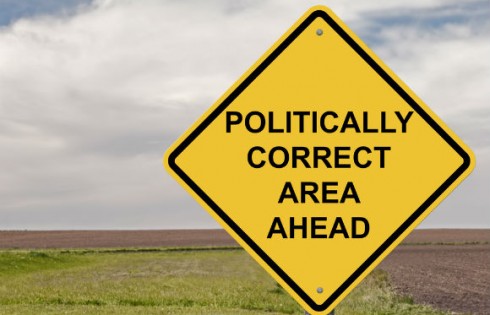
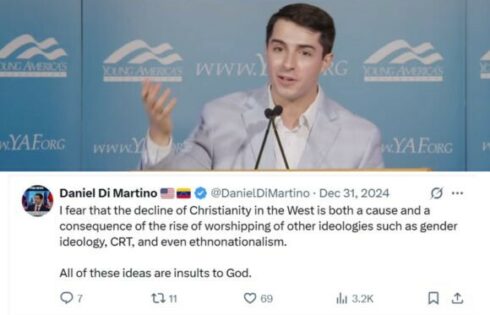
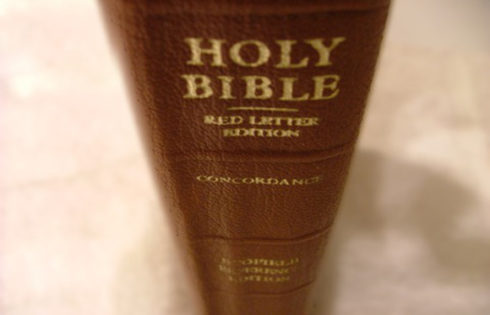
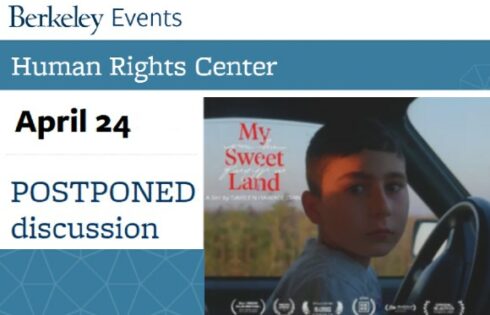
Please join the conversation about our stories on Facebook, Twitter, Instagram, Reddit, MeWe, Rumble, Gab, Minds and Gettr.